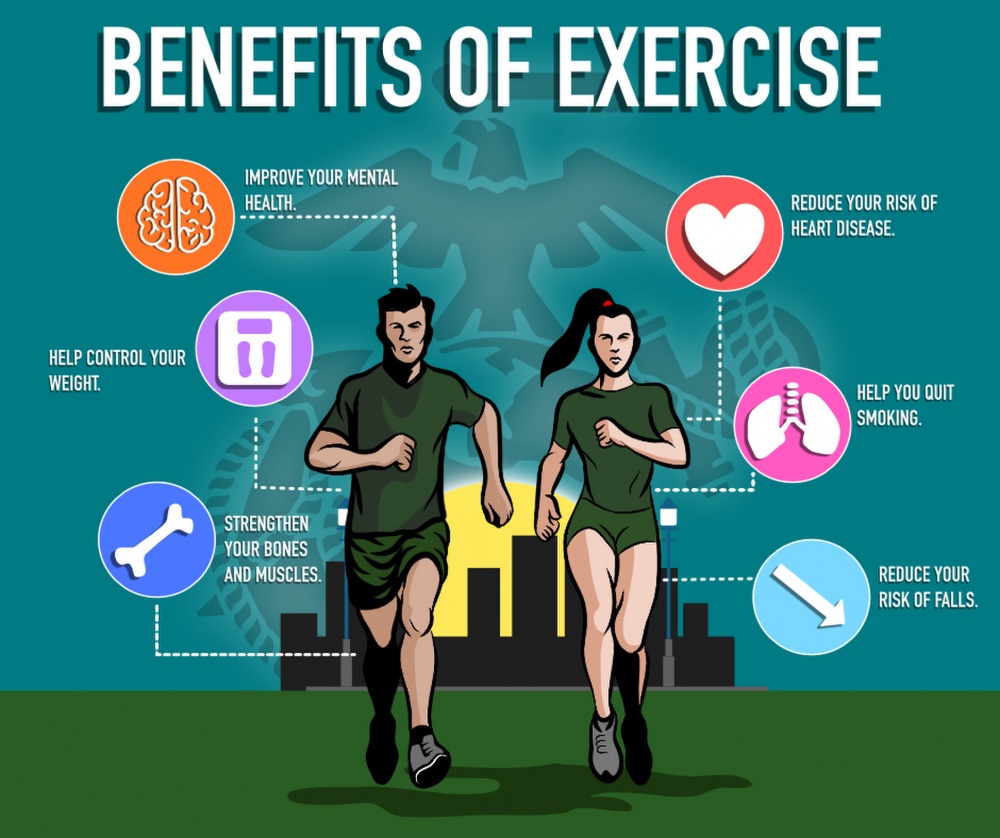Why is Fitness Important?
Fitness is an important part of our overall health and plays an important role in sustaining a healthy lifestyle. Regular physical activity and a focus on fitness have several benefits that improve our physical, mental, and emotional health.
In this essay, we will look at the significance of fitness and how it affects numerous facets of our lives.
Table of Contents
Introduction: Understanding FitnessPhysical Health Benefits
- Maintaining a Healthy Weight
- Reducing the Risk of Chronic Diseases
- Strengthening Muscles and Bones
- Boosting Mood and Reducing Stress
- Enhancing Cognitive Function
- Improving Sleep Quality
Emotional Well-being
- Increased Self-Confidence
- Better Stress Management
- Enhanced Body Image
- Building Relationships and Connections
- Encouraging Teamwork and Collaboration
- Promoting a Sense of Community
- Choose Activities You Enjoy
- Set Realistic Goals
- Prioritize Consistency
- Lack of Time
- Motivation Challenges
- Physical Limitations
FAQs
- What is the recommended frequency for exercise?
- How long should each exercise session last?
- Can fitness help with weight loss?
- Are there any age restrictions for engaging in fitness activities?
- Can I start a fitness routine if I have a pre-existing medical condition?
Introduction: Understanding Fitness
The state of being physically active and in excellent health is referred to as fitness. It consists of several components, including cardiovascular endurance, muscular strength, flexibility, and body composition. Regular exercise and a well-balanced diet are essential for developing and maintaining fitness.
- Maintaining a Healthy Weight
Regular physical activity aids in body weight management by burning calories and improving metabolism. It aids in weight management and the prevention of obesity-related health problems.
- Reducing the Risk of Chronic Diseases
Physical activity reduces the chance of developing chronic diseases such as heart disease, high blood pressure, type 2 diabetes, and certain types of cancer. It promotes cardiovascular health, decreases blood pressure, and boosts metabolic activity overall.
- Strengthening Muscles and Bones
Resistance training exercises, such as weightlifting or bodyweight workouts, serve to build muscles and bones. This improves general strength and stability while also promoting improved posture and lowering the risk of osteoporosis.
Mental Health Benefits Get best keto
- Boosting Mood and Reducing Stress
Regular exercise increases the creation of endorphins, or "feel-good" hormones, which contribute to a pleasant mood and lower stress levels. It can help with anxiety and depression symptoms as well as overall mental health.
- Enhancing Cognitive Function
Fitness has been related to increased cognitive function, such as improved memory, attention, and problem-solving abilities. Exercise improves brain health by increasing blood flow to the brain and stimulating the creation of new neurons.
- Improving Sleep Quality
Physical activity can improve sleep quality by encouraging more peaceful and deep sleep. Regular exercise helps to normalize the sleep-wake cycle and alleviates insomnia symptoms.
Emotional Well-being
- Increased Self-Confidence
Achieving fitness objectives and increasing physical health can increase one's self-esteem and confidence. It improves body image perception and gives you a sense of accomplishment.
- Better Stress Management
Regular exercise functions as a natural stress reliever by lowering stress hormone levels in the body. It aids in dealing with daily tensions and produces a more relaxed state of mind.
- Enhanced Body Image
Fitness activities help to improve body composition and build a healthier physique. This can result in a more positive body image and self-acceptance.
Social Benefits
- Building Relationships and Connections
Participating in fitness courses, group sports, or team activities allows you to meet new people and form social bonds. It promotes friendship and generates a friendly environment.
- Encouraging Teamwork and Collaboration
Team sports and group workouts, for example, necessitate cooperation and teamwork. Participating in such activities fosters crucial interpersonal skills and fosters a sense of solidarity.
- Promoting a Sense of Community
Fitness networks, whether online or in local gyms, foster a friendly and welcoming atmosphere. They provide support, motivation, and a common goal of living a healthy lifestyle.
How to Incorporate Fitness into Daily Life
- Choose Activities You Enjoy
Discover physical activities that you truly appreciate. Whether it's dancing, swimming, hiking, or playing a sport, integrating activities that you enjoy enhances the likelihood that you'll stick with them in the long run.- Set Realistic Goals
Discover physical activities that you truly appreciate. Whether it's dancing, swimming, hiking, or playing a sport, integrating activities that you enjoy enhances the likelihood that you'll stick with them in the long run.
Set attainable fitness objectives that correspond to your current fitness level. To avoid burnout or injury, begin with minor milestones and gradually increase intensity or time.
- Prioritize Consistency
When it comes to fitness, consistency is everything. Aim for consistent physical exercise throughout the week, even if it is for shorter periods of time. Consistency aids in habit formation and generating long-term benefits.
Overcoming Barriers to Fitness
- Lack of Time
Making time for fitness might be difficult, but it is critical to prioritize physical activity. Include exercise in your regular routine by scheduling it as you would any other appointment. Consider doing shorter, high-intensity workouts or taking active breaks during the day.
- Motivation Challenges
Maintaining motivation can be challenging, especially when you are tired or have a busy schedule. Find a training buddy or join fitness communities for accountability and support. To stay motivated, set realistic and relevant goals.
- Physical Limitations
Consult a healthcare expert or a trained fitness instructor if you have physical limits or medical issues to evaluate appropriate exercises and adaptations. Exercise choices for all abilities and requirements are frequently accessible.
Conclusion
Fitness is more than just a fad; it is an integral component of living a healthy lifestyle. Regular physical activity has several advantages, including improved physical health, greater mental well-being, higher self-confidence, and stronger social ties. We can experience a positive impact on our general well-being by prioritizing fitness and implementing it into our daily lives.
FAQs Get best keto
- What is the recommended frequency for exercise?
The American Heart Association recommends at least 150 minutes of moderate-intensity aerobic activity or 75 minutes of vigorous-intensity aerobic activity per week, along with strength training exercises two or more days a week.
- How long should each exercise session last?
Aim for at least 30 minutes of moderate-intensity exercise per session. However, shorter sessions of at least 10 minutes can also be beneficial.
- Can fitness help with weight loss?
Yes, regular physical activity, combined with a balanced diet, can aid in weight loss by burning calories and increasing metabolism.
- Are there any age restrictions for engaging in fitness activities?
Fitness activities can be modified to suit individuals of different age groups and abilities. Consult with a healthcare professional for personalized advice.
- Can I start a fitness routine if I have a pre-existing medical condition?
It is crucial to consult with a healthcare professional before starting any fitness routine, especially if you have a pre-existing medical condition. They can provide guidance and recommend suitable exercises based on your specific needs and limitations.

